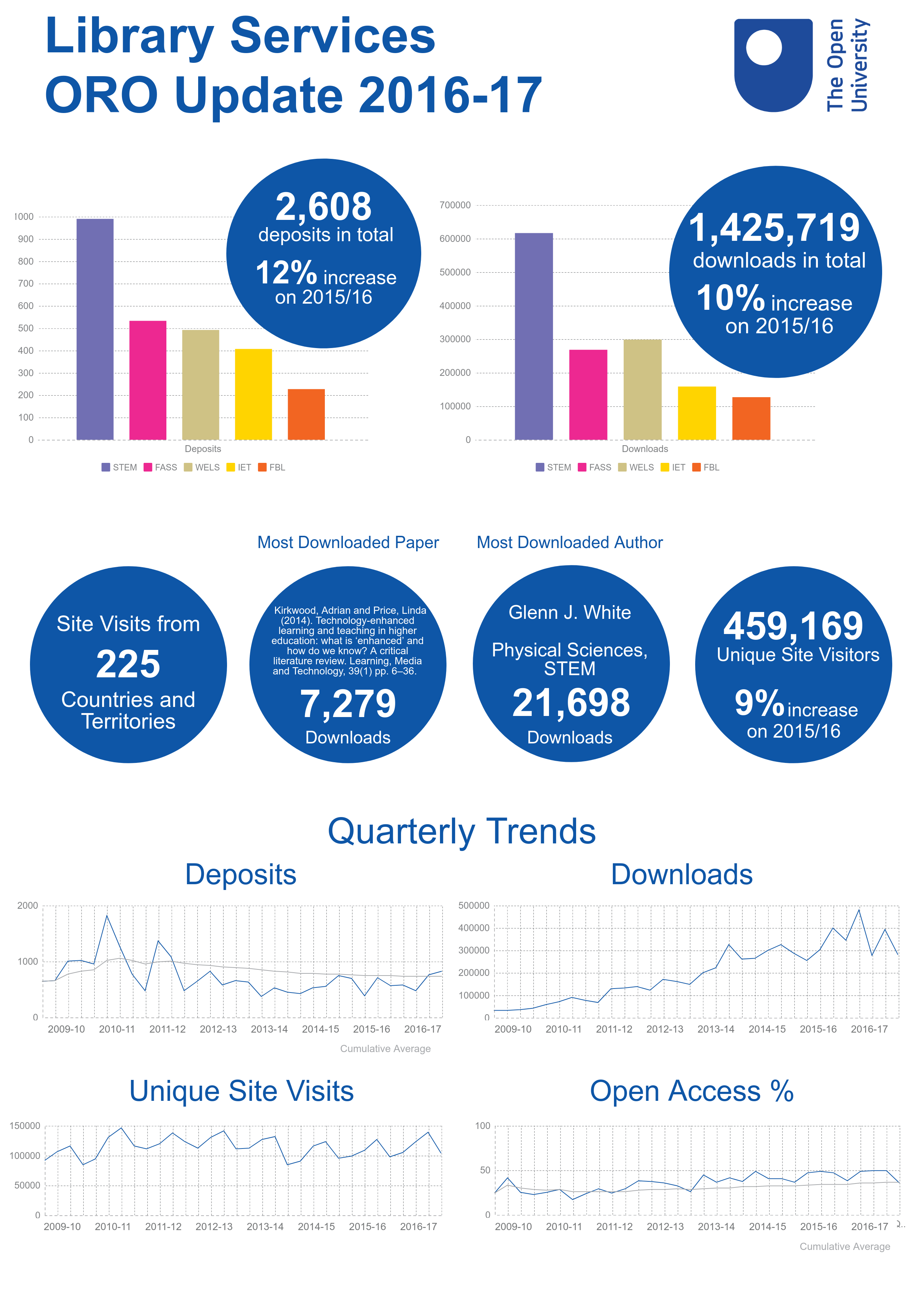The ORO Annual Report compiles some key information about ORO. It provides both a snapshot of its performance and also provides some useful trend data.

PDF Version
Like all UK repositories the REF Open Access policy has increased the importance of the repository to the institution and the data shows a marked growth in collecting research outputs – a 12% increase.
But that doesn’t mean we are publishing 12% more – the deposit rates to ORO shouldn’t be seen as a proxy for publication rates. The 12% increase reflects 2 things:
- We are getting more newly published materials added to ORO in a timely manner.
- We are getting more ‘already published’ materials added to ORO. ORO provides the publications feed for the people profile system so it’s important to curate that profile and add previous research highlights to ORO – this is especially the case for new members of research staff.
We have also seen a growth in dissemination, with an increase in both downloads (10%) and site visits (9%). We have to remember that providing a platform for Open Access content is the core function of ORO and a great fit with the OU mission.
Embarking on the next OU academic year the ORO service will continue to innovate. We want to increase the coverage of ORO and try and capture all the research outputs produced by the OU research community. To that end we plan to move to part-automated deposit using the Jisc Publications Router. We want to harness the increasing ubiquity of ORCID IDs to increase the interoperability of ORO – this should help us (and you) to both populate ORO and other research systems (e.g. ResearchFish). We also plan to do some usability work to ensure the deposit workflows in ORO are as simple as possible.
Thinking further, the ORO service, and institutional repositories in general, need to demonstrate the benefit the increase in Open Access we are seeing has made to both our research community, and to the readers who have accessed this Open Access content. That’s not easy, but somehow we need to demonstrate the benefits (dare I say it…. the impact) of all of our efforts to increase the amount of Open Access outputs published by our researchers.


